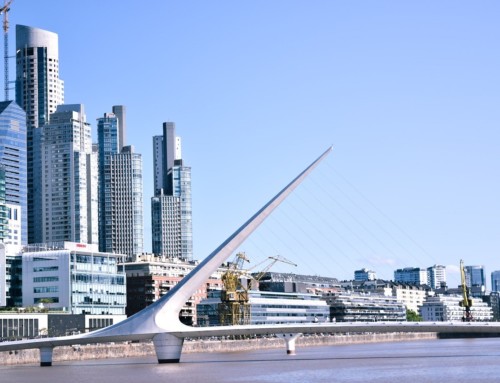Especially in reference to recent developments around Syria and the Middle East, we are bombarded with questions about the international events and caveats in negotiations with intercultural context.
The following interview published by the magazine Kriminalpolizei (Criminal Investigation Department – CID) provides some answers on this complex issue:
CID: What is the difference between negotiations in business and hostage negotiations involving the police –
it is the fact that the police has less time to prepare for a negotiation partner?
Dr. Stefan Amin Talab: This need not be the case. Recently, the police overpowered a man in Australia after thorough preparation. The perpetrator was known throughout the city and had taken hostages in a supermarket. The police knew the man could not be calmed down from his intense emotional state by means of negotiations only. He would only respond to a massive police operation. The police staged a completely exaggerated showing – surrounded him with hundreds of black masked men while police helicopters were circling. They made clear the hopelessness of the situation to the delinquent. He surrendered promptly.
In this case the police has had an essential piece of information, exploited that, adjusted and acted exactly right.
A major difference – in respect to its impact on the negotiations – is that the police are always under the eyes of the public and will be closely monitored. This raises the difficulty level. When a company representative behaves awkwardly in sales negotiations the public will learn nothing about it – especially not during the time of negotiations. The police have an audience already during the negotiation process.
If, for example, the excessive use of police resources in Australia is not explained concomitantly, the police gets a massive problem.
CID: What do you assess to be the most difficult thing to hostage negotiations?
Talab: The unpredictability. These are always situations that permit no standard recipe. Therefore, it is important for the police that they will be given the necessary space and reliance.
CID: In your opinion, what are the most important qualities needed by a negotiator?
Talab: Josh Weiss, a negotiation trainer of the NYPD once put it aptly: In the selection of his staff, he explicitly did not care if someone could talk – he paid particular attention to the fact if someone could listen. This is probably the most important quality: to listen and adapt to your opponent, recognize his fears and compulsions and to know how he thinks and may act.
Secondly: Negotiators are no lone fighters, they are necessarily team players. This is related to the first point. A single warrior can hardly adjust to others. A team player must listen. To give an example, it must not disturb the chief negotiator to bring coffee to a busy colleague.
CID: Do you believe an Austrian unrelated to the Palestinian World could negotiate with a Palestinian terrorist?
Talab: Never. I myself am half Syrian half Austrian and therefore know the differences in thinking. It would not make sense, for example, to allow a female police officer to negotiate with a Palestinian terrorist.
This is already quite impossible given the different languages.
The American movie “The Negotiator” is about a criminal case with a negotiation situation. In one scene, one of the protagonists in the German translation says: “You must listen to me now.” In German this really means “you’re not listening to me.”
I watched the DVD at this point in the English version, and it really says “I need you listening to me”. This is much softer than “You must listen to me.”
We know from school that literal translations – no matter what language – usually go wrong. In an emotionally tense situation, as it is a hostage negotiation, this can be fatal.
CID: What would you advise the police in such a case?
Talab: In hostage negotiations with people from other cultures they should necessarily employ somebody from the same cultural environment or at least has lived very long in it.
As someone who has half Syrian roots I know, for example, that I touch somebody emotionally by talking about his father. An Austrian hostage take might say “I do not care what my father thinks of me”. For a Syrian this would have a completely different dimension, as a father has a very different status.
CID: You write in your book negotiators should always consider alternative outcomes. What alternatives does the police have – except the unconditional surrender of a hostage-taker?
Talab: In the end she has no alternative – but at the path to the goal, there are always a number of forks in the road. For example you can try to free sick or old people first. You may possibly offer a reduction in the criminal charge – as a concession in the negotiations.
CID: Are there “negotiation tricks” that could apply the police also ?
Talab: Of course there are. But they are not as striking as many would wish, and they are always situational. Think of the case in Australia: Another hostage-taker might have started to shoot hostages if the police would be deployed in such a contingent form.
It’s like running : As a principle you can recommend to breathe deeply in a marathon. But that does not apply to the final sprint or for an overtaking maneuver. Similarly, one can recommend for negotiations to build trust as a general principle. But that does not apply to each and every negotiator. For a given type, it may be more effective to position yourself clearly as the sovereign.
Source: www.comeon.at






Leave A Comment
You must be logged in to post a comment.